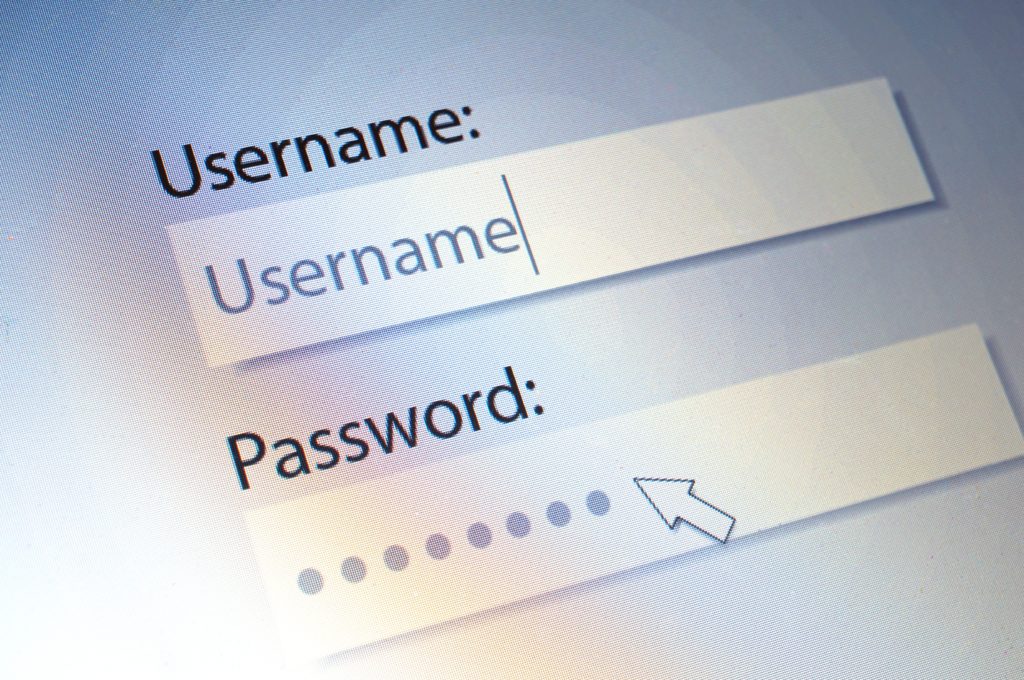As any new practice manager will soon discover, life is ruled by passwords. And obtaining a whole load of passwords to start working in a surgery can take a considerable amount of time. It’s not a five-minute job. Another problem is working remotely – say, from home – as many of the sites you might want to use are restricted to an NHS secure connection.
The NHS basics, just to get you up and running
The starting point for any new practice manager is obtaining an NHS smart card (1) with a password and an NHS email address (2) with a password. With a bit of luck, your name will form your password without your being, say, the eleventh person with that particular name, as I recently found. At one point, there were two of this ‘unique’ email address, [email protected] – one in England and one in Scotland. But from the outset, you’ll also need access to the practice computer network (3). You’ll then need access to the clinical system using your smart card. Well, that’s a start. But there’s more… You’ll need passwords to gain access to the practice website (4), the NHS (Choices) website (5), and the CQC website (6). More importantly, you’ll need password access to Open Exeter (7) and CQRS (8) to monitor payments and claims, but also the PCSE (Primary Care Support England) (9) to report practice changes and make sure superannuation is correctly deducted.
Are you getting somewhere now?
And there’s more! Unless the financial management is carried out by an outside agent or accountant, the practice accounts software (10) and payroll software (11) will have password access. There will be a Government Gateway link to the Inland Revenue (12) for the monthly submission of PAYE and National Insurance contributions data. You’ll also need access to the NHS Pensions website for the monthly submission of contributions data and annual returns (13). On the NHS Pensions website, there’s also a contact name recorded. So, if someone else uses the site, that person won’t receive contact messages. I’ve also come across the development of portals or gateways used as a method of communication between a practice and their accountant (14).
And then there’s more…
Another password you might need to set up is one for access to PACT data on prescribing (15). There’s also PRIMIS, an audit tool system based at the University of Nottingham (16). I suspect that you may also need a staff login to your CCG (17), PCN (18), and local Federation (19) websites.
The world is now your oyster – or is it?
Again, there are a variety of ways to initiate a logon to these password-controlled environments. Some require a simple logon routine for which you’ll certainly need your practice code number. Others will involve the completion of a form, usually with the signature of a sponsor. The main problem I’ve found is how long it takes to get set up with the necessary collection of passwords. It’s not days, but weeks! In the meantime, you can hardly do your job, unless you cheat and use someone else’s password. Sorry, I haven’t said that! There is, however, a strong argument for generic passwords allocated, say, to a senior partner and then issued to the practice manager only as needed.
Now, about that password…
The whole idea of passwords is to keep your data secure. Passwords are usually preceded by a user name. This might be your practice code or maybe your name. But the password will be made up of a selection of characters – upper or lower-case letters, numbers or punctuation characters. The problem is remembering the password. Your phone, tablet or computer may automatically remember the username and password but this isn’t always the case. You might keep a notebook of your passwords which you might lose at your peril. To make life easier, you might try a common password – and you can change a particular character when it’s due for renewal. Never share your password with anyone else. Treat it with the same level of care as you would your bank-card code.
Here are some links that will help newcomers play the password game!
NHS smartcard
As a first step, you’ll need to contact your local registration authority: https://digital.nhs.uk/services/registration-authorities-and-smartcards/primary-care-service-provider-contact-details#north-west
The process involves providing proof of your identity such as utility invoices, but not mobile phone bills, along with the taking of a photograph.
NHS email
Have a look at this link to help you set up your email account: https://support.nhs.net/article-categories/joining-nhsmail/
NHS (Choices) website
To edit your practice profile on the NHS website, you need to be able to log into the Profile Editor. To do this, you’ll need to contact the Service Desk. The instructions are set out on the Profile Editor login page. Scroll down to the bottom of the site.
NHS Pensions
This is another password that requires the completion of a form with a sponsor’s signature.
Here’s the link: https://www.nhsbsa.nhs.uk/sites/default/files/2019-05/03.%20Registration%20Process.pdf
Inland Revenue – Government Gateway
This site can be used to transmit employment payroll data, such as PAYE and NIC. This link would be set up in your payroll software.
https://www.gov.uk/log-in-register-hmrc-online-services
Open Exeter
Useful links: https://pcse.england.nhs.uk/services/open-exeter/
CQC – Care Quality Commission
Useful link: https://www.cqc.org.uk/guidance-providers/all-services/cqc-provider-portal
CQRS – Calculating Quality Reporting Service
Useful link: https://digital.nhs.uk/services/calculating-quality-reporting-service
PCSE – Primary Care Support England
Useful link: https://pcse.england.nhs.uk/help/using-pcse-online/logging-into-pcse-online/
PACT – Prescribing Analysis
Useful link: https://www.nhsbsa.nhs.uk/information-services-portal-isp
And finally, NHS Digital
Even NHS Digital have issued new guidance on passwords:
And some advice from Practice Index
https://practiceindex.co.uk/gp/forum/resources/employee-handbook.133





0 Comments